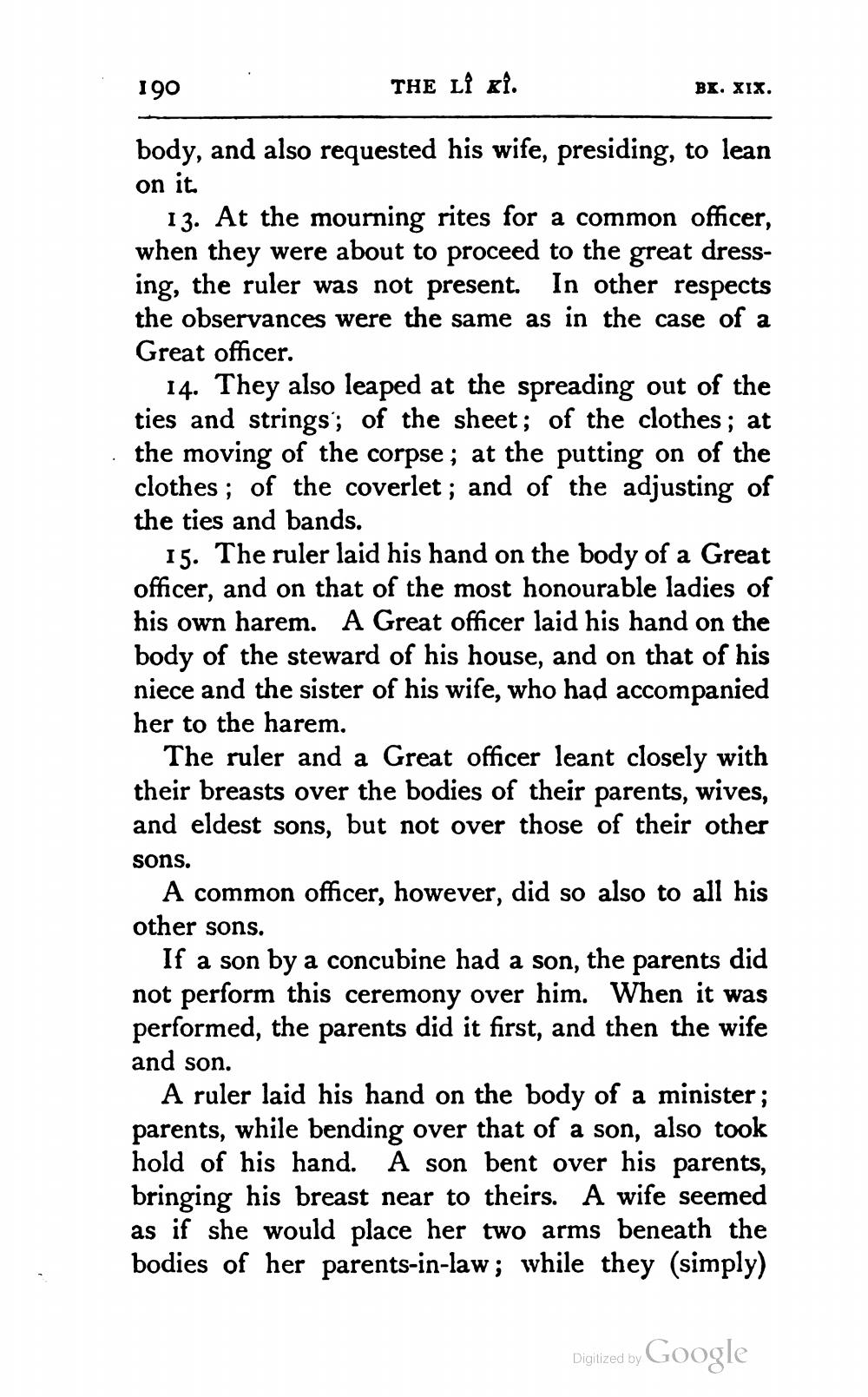________________
190
.
THE LÎ xi.
BX. XIX.
body, and also requested his wife, presiding, to lean on it.
13. At the mourning rites for a common officer, when they were about to proceed to the great dressing, the ruler was not present. In other respects the observances were the same as in the case of a Great officer.
14. They also leaped at the spreading out of the ties and strings'; of the sheet; of the clothes; at the moving of the corpse; at the putting on of the clothes; of the coverlet; and of the adjusting of the ties and bands.
15. The ruler laid his hand on the body of a Great officer, and on that of the most honourable ladies of his own harem. A Great officer laid his hand on the body of the steward of his house, and on that of his niece and the sister of his wife, who had accompanied her to the harem.
The ruler and a Great officer leant closely with their breasts over the bodies of their parents, wives, and eldest sons, but not over those of their other sons.
A common officer, however, did so also to all his other sons.
If a son by a concubine had a son, the parents did not perform this ceremony over him. When it was performed, the parents did it first, and then the wife and son.
A ruler laid his hand on the body of a minister; parents, while bending over that of a son, also took hold of his hand. A son bent over his parents, bringing his breast near to theirs. A wife seemed as if she would place her two arms beneath the bodies of her parents-in-law; while they (simply)
Digitized by Google




